14 Hair Growth Tips to Grow Hair Faster
Hair is more than just appearance—it’s a reflection of your health, lifestyle, and habits. If you’ve been struggling with slow-growing or thinning hair, you’re not alone. While genetics play a part, many external and internal factors can either support or hinder your hair’s natural growth cycle. The good news? There are plenty of practical steps you can take today to encourage faster, stronger, and healthier hair growth.

1. Nourish Your Hair From the Inside Out
Your hair is made up of a protein called keratin, so your diet plays a huge role in its strength and growth. A deficiency in essential nutrients like protein, iron, biotin, and vitamins A and D can lead to brittle strands and excessive shedding. Eating a balanced diet that includes leafy greens, sweet potatoes, eggs, nuts, seeds, berries, and lean meats can fuel your follicles from within. Omega-3 fatty acids found in foods like salmon and flaxseed can also help reduce inflammation and promote a healthier scalp environment.

2. Don’t Skip the Scalp Massage
It might sound too simple, but a daily scalp massage can work wonders. Massaging your scalp stimulates blood flow, which delivers more oxygen and nutrients to your hair follicles. This, in turn, can support the anagen (growth) phase of the hair cycle. For even better results, warm a little coconut or castor oil and use it during your massage. Oils not only improve circulation but also moisturize the scalp, reducing dryness and flaking, which can interfere with healthy growth.
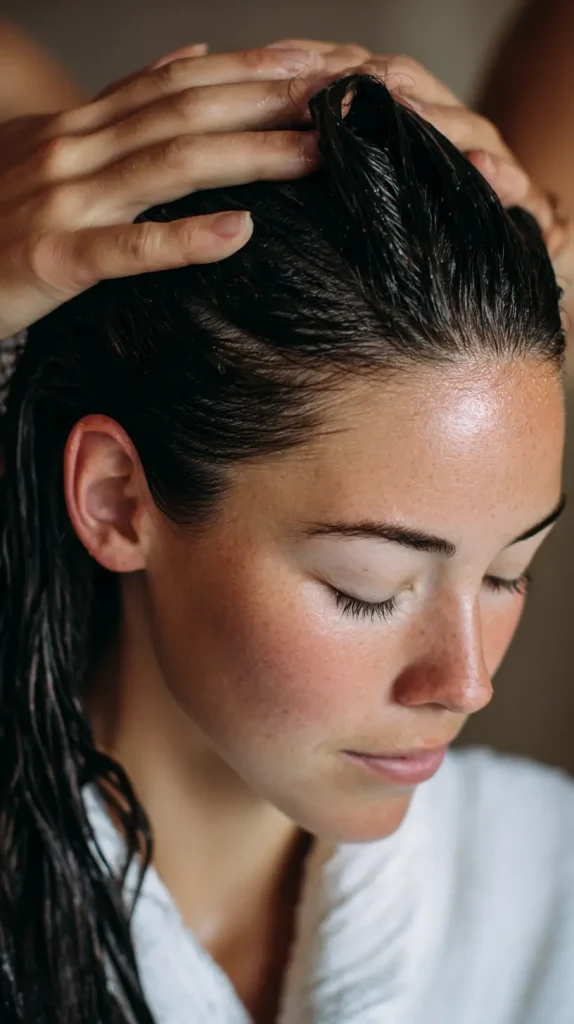
3. Be Gentle When Brushing
Many people don’t realize that rough handling is one of the biggest culprits behind hair breakage. Brushing your hair when it’s wet can cause the most damage because wet hair is at its weakest. Use a wide-tooth comb or a detangling brush, and always start from the ends, slowly working your way up to the roots. Brushing also helps distribute your scalp’s natural oils down the length of your hair, acting as a natural conditioner that can make hair shinier and less prone to dryness.

4. Choose the Right Shampoo and Conditioner
Your hair care products should match your hair type and concerns. Sulfate-based shampoos may give you a good lather, but they often strip your scalp and strands of essential oils, leading to dryness and irritation. Look for shampoos that are sulfate- and paraben-free and contain ingredients like biotin, niacin, and natural plant extracts. Your conditioner should hydrate without weighing your hair down, especially if your hair is fine or thin. Don’t skip conditioning—it helps seal the cuticle and prevents tangling and split ends.
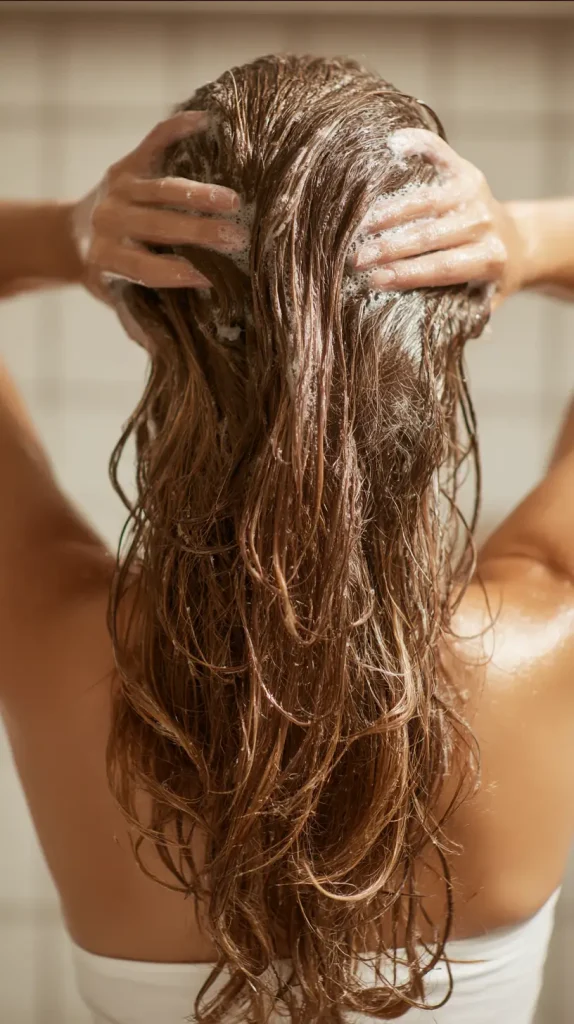
5. Trim Split Ends Regularly
Let’s clear up the myth: trimming doesn’t make your hair grow faster—but it helps maintain the integrity of your hair. When split ends are left unchecked, they travel up the shaft, causing more breakage and even shortening the length over time. Trimming every 8–12 weeks helps keep your hair looking fresh, reduces breakage, and allows healthy growth to continue uninterrupted. Think of it as maintenance rather than loss.
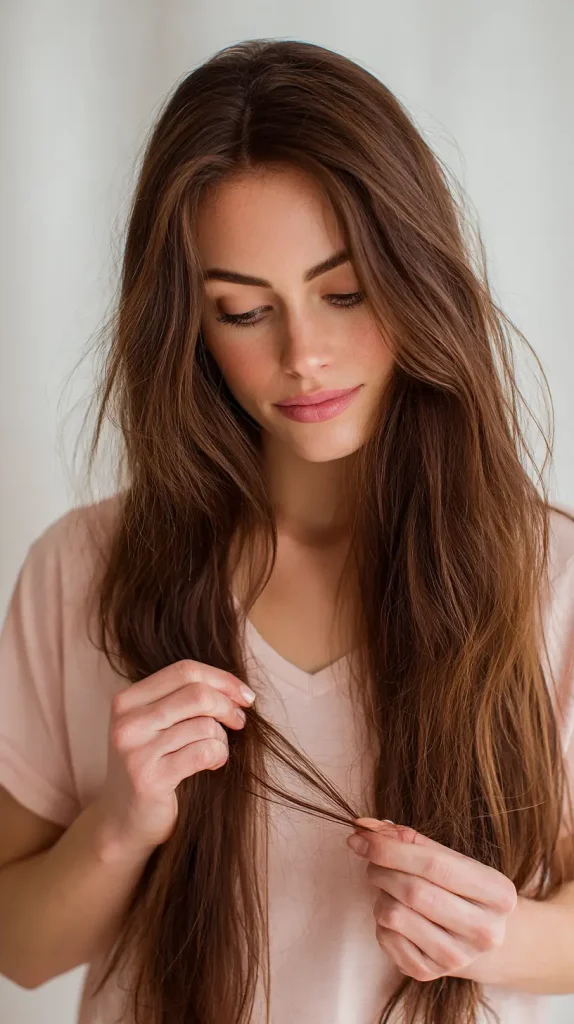
6. Avoid Heat Styling (As Much As Possible)
Heat styling tools like curling irons, flat irons, and blow dryers can weaken hair structure by breaking down the keratin protein. This leads to breakage, dryness, and split ends. If you must use heat, never skip the heat protectant spray. Use ceramic tools with adjustable temperature settings and avoid using them daily. Embracing natural styles more often can give your hair time to recover and grow stronger.

7. Use Hair Oils for Deep Nourishment
Hair oils are a centuries-old beauty ritual that still holds up today. Castor oil is packed with ricinoleic acid, which improves blood flow to the scalp. Coconut oil penetrates the hair shaft to reduce protein loss, while argan oil is rich in vitamin E and antioxidants. Apply oil to your scalp and massage it in, then comb it through your lengths and let it sit for at least 30 minutes before washing it out. Doing this once or twice a week can greatly improve shine, elasticity, and strength over time.

8. Protect Your Hair While Sleeping
You might not realize it, but how you sleep can impact your hair. Tossing and turning on rough cotton pillowcases causes friction that leads to breakage, especially for people with curly or textured hair. Switching to a satin or silk pillowcase helps maintain moisture levels and reduces tangling. Alternatively, you can wrap your hair in a silk or satin bonnet or use a protective hairstyle like a loose braid or bun to minimize damage overnight.

9. Stay Hydrated
Just like every other part of your body, your hair needs water to stay healthy. Dehydrated hair becomes dry, brittle, and prone to breaking, which can make it seem like it’s not growing at all. Drinking enough water helps transport vitamins and minerals to the hair follicles. Aim for at least 8 cups of water per day—more if you’re active or live in a hot climate. You’ll notice improvements in both your hair and your skin when you’re well-hydrated.

10. Reduce Stress Levels
High stress levels can disrupt the hair growth cycle and lead to conditions like telogen effluvium, where hair prematurely enters the shedding phase. You might notice excessive hair loss during stressful life events or health issues. Incorporating stress-reducing practices such as mindfulness meditation, exercise, or even talking with a therapist can make a noticeable difference. A calmer mind often leads to a healthier body—and that includes your scalp and hair.

11. Avoid Over-Washing Your Hair
Washing your hair every day can strip away its natural oils, leaving the scalp dry and the hair fragile. Most people only need to wash their hair two to three times a week, depending on their hair type and activity level. On non-wash days, use a dry shampoo or simply rinse your hair with water if needed. Over-washing can also trigger the scalp to produce more oil, creating a cycle of greasy hair and frequent washing.
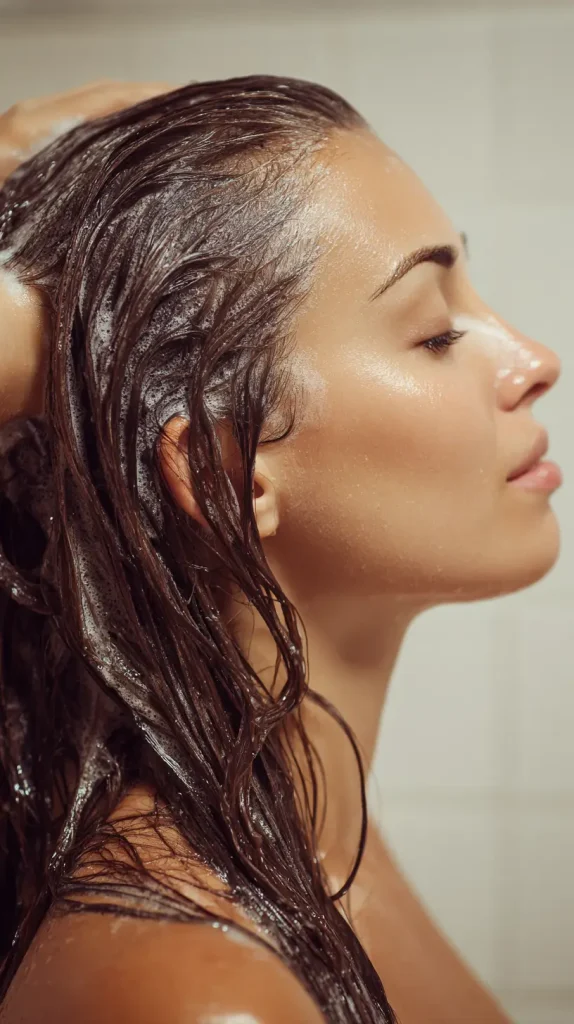
12. Try Hair Growth Supplements (With Caution)
Hair growth supplements can be helpful if your hair issues stem from nutritional deficiencies. Biotin, collagen, zinc, iron, and vitamin D are some of the most commonly recommended nutrients. However, not all supplements are created equal, and taking high doses without medical advice can do more harm than good. Always consult your healthcare provider before adding new supplements, especially if you’re already taking other medications or have health conditions.

13. Don’t Ignore Medical Issues
If you’ve tried everything and your hair still isn’t growing or is falling out excessively, it’s time to dig deeper. Conditions like thyroid imbalances, anemia, polycystic ovary syndrome (PCOS), and even chronic vitamin deficiencies can impact hair health. In some cases, medications can also cause hair thinning as a side effect. Visiting a dermatologist or doctor can help you get to the root of the problem—literally—and explore treatment options.
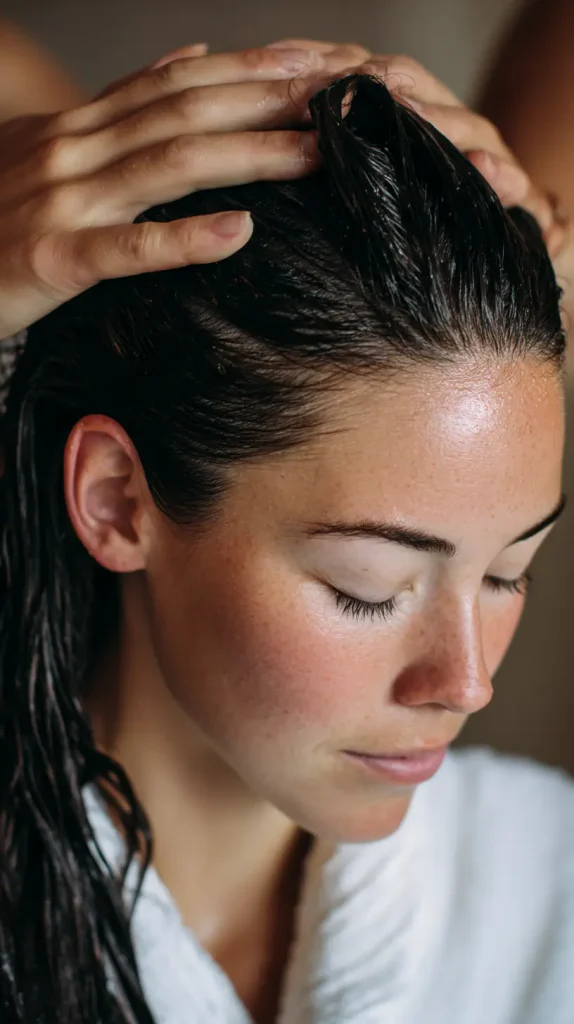
14. Be Consistent and Patient
Hair doesn’t grow overnight. On average, hair grows about half an inch per month—that’s only 6 inches per year. It takes commitment to a healthy routine and patience to see visible changes. Avoid switching products and routines too frequently; give your hair time to respond. Focus on progress, not perfection, and celebrate small wins—like less shedding or shinier strands—along the way.

Frequently Asked Questions
How long does it take to see results with these tips?
You may start noticing changes in hair texture, strength, and reduced shedding within 6–8 weeks. Visible length gain may take 3–6 months of consistent care.
Does cutting hair make it grow faster?
No, trimming doesn’t affect the hair follicles. However, removing split ends prevents further breakage and gives the appearance of longer, healthier hair.
Are hair growth oils actually effective?
Yes, especially oils like castor oil, rosemary oil, and coconut oil. They nourish the scalp, reduce inflammation, and strengthen hair, all of which contribute to healthier growth.
What’s the fastest way to grow hair naturally?
A combination of a nutritious diet, scalp care, stress reduction, and avoiding damaging styling practices is the most effective and natural approach.
Is biotin really helpful for hair growth?
Biotin can help if you have a deficiency, but it’s not a miracle cure. It’s best used in combination with other essential nutrients and a well-rounded routine.
Conclusion
Growing your hair faster is a realistic goal—but it requires intention, care, and patience. From nourishing your body to treating your scalp and strands with kindness, each small change adds up over time. Consistency is the real secret. Keep in mind that healthy hair isn’t just about what you put on your head, but also how you treat your whole body and mind. Stay dedicated, and over time, you’ll not only see longer hair but also stronger, shinier, and more vibrant strands.
